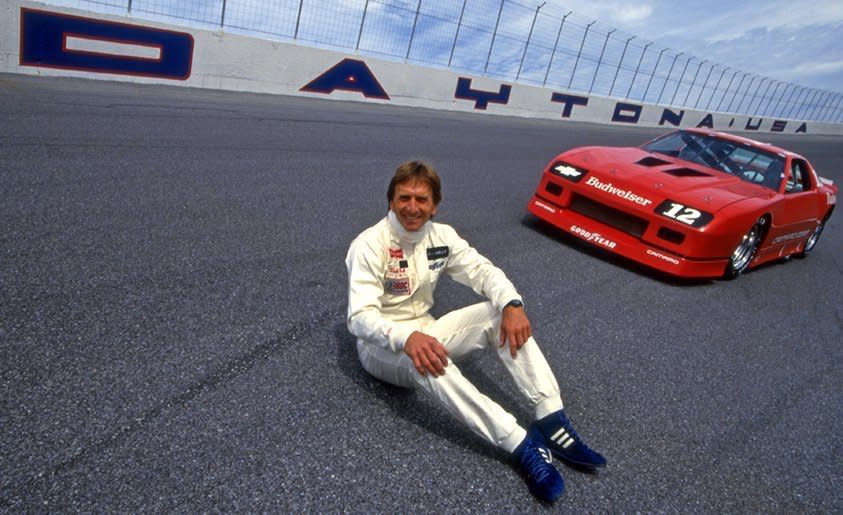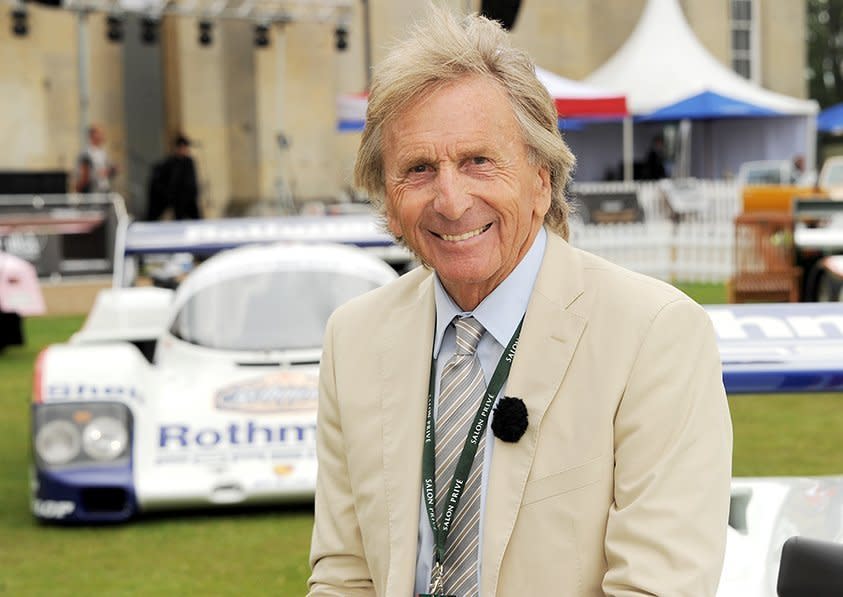What I'd Do Differently: Derek Bell


From the October 2016 issue
C/D: Did you find it easy to get into racing?
DB: Not at all. These days it’s all karts and feeder series, but there was none of that; I was working on a farm. One day I saw an ad for the Jim Russell Racing Drivers School, so I applied. They said yes, as I was paying, but it was at Snetterton, 180 miles from the farm. It was a pound a lap and 10 pounds to “learn” a corner, driving through it in Lotus 18s. I was only earning 20 quid a week, so I couldn’t do it often.
C/D: It worked. Ten years later you were turning down a Formula 1 drive with Cooper for a Formula 2 drive with Ferrari.
DB: Cooper said they wanted to offer me a contract, and I thought I’d pick up a decent sum of money, 50,000 quid or something like that. Then the discussion with a guy called Major Owens. He was saying they’d had a shitty year, their income had fallen, he’s making all these excuses, and so my expected 50 was dropping to 20 then 10 then even lower; I hadn’t mentioned a number yet. Finally the offer came: “Let’s say a nominal sum of 5 pounds.” They wanted me to sign my Formula 1 contract for five quid! At least Ferrari were paying.

Derek Bell sits on the Turn 4 banking in front of a Chevrolet Camaro Z28 before the IROC International Race of Champions race at the Daytona International Speedway on February 13, 1987.
C/D: How did you get on with Enzo Ferrari?
DB: Very well. I could speak French, so we didn’t need a translator. When I got to the factory there wasn’t a soul there. It was magnificent—cars on the red-tiled floor and sitting on chassis stands, everything immaculate. Nobody was working; the secretary said it was a holiday. As time went on, I realized that meant they were all on strike. I’m walking past the assembly line when the Old Man comes around the corner, raincoat over his shoulder and his silver hair immaculate. I’ll never forget that.
C/D: Did you feel lucky to have survived an era that killed so many drivers?
DB: I was always very nervous before a race, but once the flag dropped you forgot all about it. I’m not ruthless, I’m not brave. The only thing I do is drive cars fast because I know I can; they don’t scare me. I was never the best in the world, but I knew that I had ability, that I was pretty good.
C/D: You had a few Formula 1 drives and competed in everything from Can-Am to touring cars, as well as decades in sports cars. Which was the scariest car?
DB: I’d say hairy rather than scary. Probably the Porsche 935, because it wasn’t meant to do what it did. You had to manhandle it. The car didn’t want to turn; the tires were about 18 inches wide at the back; you had the engine behind the centerline of the rear wheels and it’s pushing out 750 horsepower. I don’t remember many of us having accidents in them—well, apart from the obvious one when my teammate [Rolf Stommelen] died in the car I’d just got out of. Generally speaking, we didn’t make mistakes in them because you couldn’t. It was a hell of a thing, an absolute animal.

Derek Bell drives the #5 Gulf Oil Racing Kremer CK8 Spyder Porsche 935/76 during the FIA World Sportscar Championship 24 Hours of Le Mans race on June 20, 1994, at the Circuit de la Sarthe, Le Mans, France.
C/D: You stayed after your first Le Mans race (1970) to drive in the film Le Mans. What was Steve McQueen like to work with?
DB: We had a lot of laughs. We had a good time. It wasn’t parties as such; on that movie everyone was desperate to make it work. Steve’s money was going down the tube. David Piper lost a leg, I got burned, all sorts of things happened. It was pretty bloody serious. We were driving at racing speeds day after day. We never went slowly.
C/D: You went on to win Le Mans five times and even drove there alongside your son, Justin Bell. Which 24 Hours do you remember best?
DB: I couldn’t really tell the wins from each other. Well, not the four with Porsche. I’d say probably 1995 with McLaren. I wasn’t going to drive, I’d retired, but then I got a call from Justin saying they needed me. We qualified in 13th place and then it piddled with rain and the top cars all fell out, and by 10 o’clock we were leading. In the end we finished third. It was a remarkable performance.

Derek Bell attends the Salon Prive in association with Audemars Piguet at Syon Park on June 24, 2011, in London, England.
C/D: With such a long Porsche association, how did you end up working with Bentley?
DB: I’d always wanted to work with a manufacturer, and when Bentley told me about everything they had lined up—Le Mans, a huge investment—I pretty much bit their arm off. You get the odd person, normally a Brit, who still says, “You’ve joined the Germans,” and I always say that without German investment there wouldn’t be a Bentley, get that straight.
C/D: What would you do differently?
DB: How can anybody having had a successful and enjoyable and basically accident-free 45 years of racing say he would have changed it for anything else? I would love to have had a chance to do Formula 1 in a competitive car, but if I had, I might have missed out on other stuff. I wasted two years screwing around on the edge of Formula 3 with a shitty car, but I was still gaining experience. It all helps to carry you forward.

 Yahoo Autos
Yahoo Autos 